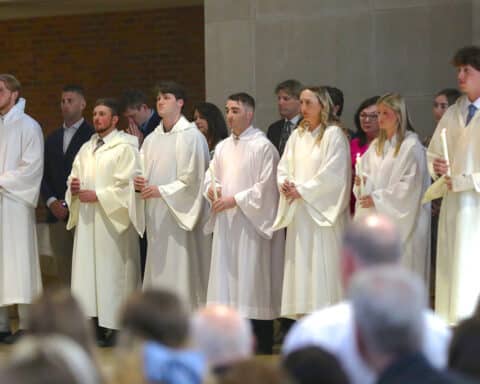Question: I wonder why we talk about certainty. It seems to me that certainty is a form of arrogance, since it says we have no doubt about something.
— Name, place withheld
Answer: You speak too categorically. Certitude is not necessarily absent of all misgiving or doubt. We can distinguish between different types of certitude, admitting of varying degrees of misgiving, from none to some.
The highest form of certitude is the certitude of faith that does not admit of error. The certitude extends to the truths of our faith as revealed by God who can neither deceive, nor be deceived. The certitude is in God, not in us.
Metaphysical certitude regards truths that are self-evidently necessary; for example, that I who am thinking must therefore exist, or that a triangle has three sides are things about which we can have nearly absolute certainty.
Physical certitude rests on the laws of nature. Such truths are generally consistent and discoverable as laws by experience, and permit us to confidently predict the future by the past. But physical certitude can occasionally give way to outside factors, which alter the outcomes.
Moral certitude involves judgments made concerning human character and conduct; for the laws of human nature are not quite universal, but subject to occasional exceptions. I can depend on others with this certitude, but realize that people sometimes disappoint, even if rarely.





